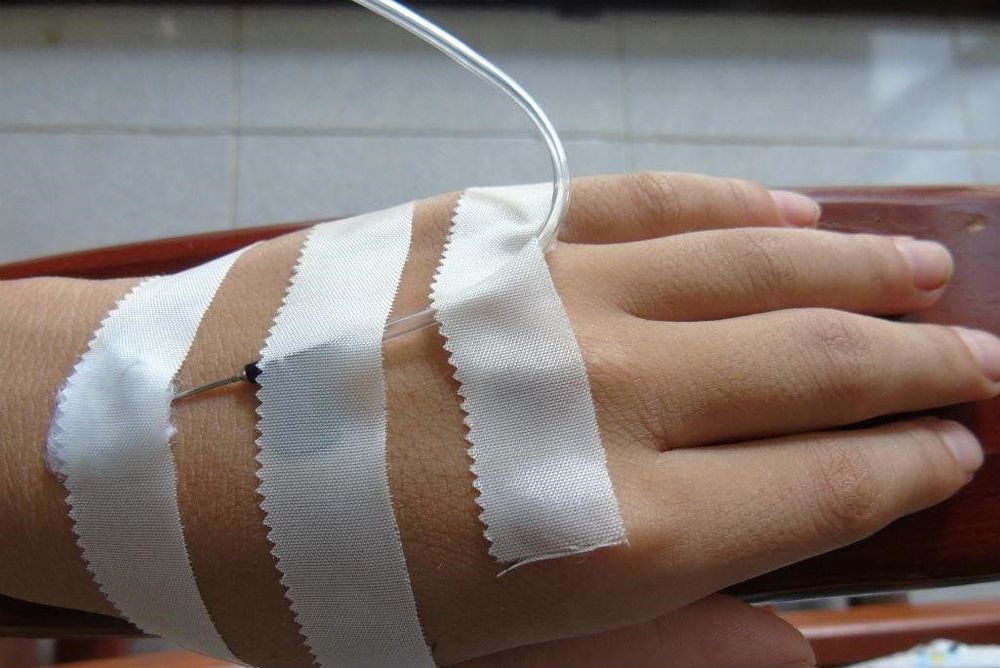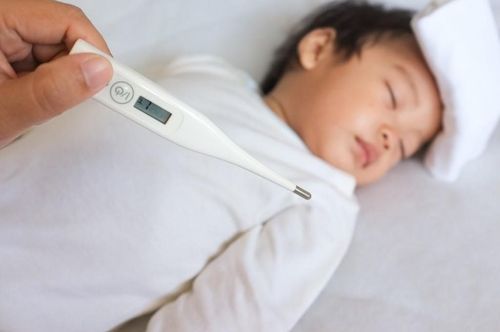This is an automatically translated article.
The article was professionally consulted by BSCK II, Senior Doctor Tran Khac Dien - General Health Examination Unit, Vinmec Times City International General Hospital.Viral fever is caused by viral agents entering the body, there are many common viruses: Respiratory viruses, digestive viruses,... The disease occurs all year round, but mainly concentrated is in summer and spring. When suffering from viral fever, many people arbitrarily transfuse without following any instructions. So should you give fluids when you have a viral fever?
1. Viral fever in children and adults
When infected with a virus, the body produces antibodies to fight the invasion of the virus. Fever is one of the symptoms of the body's immune response. High or moderate fever depends on many other factors, for a normal person, when a virus attack causes a fever called viral fever.Common viruses such as measles, chickenpox cause pneumonia,... However, the most common are respiratory viruses. Not only that, this viral fever can also be spread from one person to another through the respiratory and digestive tracts, which can spread very quickly into an epidemic.
When having a viral fever, the sick person often has symptoms such as a high fever continuously or fever in the afternoon or at night. When a patient has a fever, the patient's body temperature can rise to 39 degrees Celsius to 40 degrees Celsius, if this condition occurs in young children, it can cause convulsions that greatly affect their health later on.
There are also other cases of mild fever and may develop a rash after 2-3 days. Accompanied by fever, the patient may have a cough, runny nose, and some digestive disorders. Children with viral fever may have lymphadenitis in the head, neck, and face. When the lymph nodes are enlarged, the baby will be in pain and cry.

2. Should fluids be given when having a viral fever?
There are many patients who think that the infusion will help "cool" the body, "relieve heat", "rehydrate", "replenish the body" and this is completely harmless. However, they do not know what the cause of the fever is and what the impact of the infusion on the body is, leading to ignorance and indiscriminate transfusion.
Many parents believe that when they have a fever, they need to give fluids to be good and have a fever-reducing effect. However, there is no evidence to confirm the antipyretic effect of infusion.
3. Is the infusion good?

Infusion should only be given when a patient with a viral fever shows signs of vomiting or diarrhea leading to the body's failure to compensate for electrolytes. It is advisable to supplement for patients as well as children by eating in a scientific way to be more effective.
The infusion of children is not even effective, but it is also dangerous for the child if there is an epidemic shock or the risk of infectious diseases from unsafe infusion.
There have been cases where parents asked to give fluids to their children for 2-3 days but they did not see that their children had no fever, and when they were examined again, they discovered that the children had pneumonia, meningitis,...
Patients should not receive intravenous fluids. unless directed by a doctor, especially for young children. Viral fever usually goes away after about 3-5 days, the patient and the patient's family do not need to be too worried, leading to the indiscriminate use of drugs and infusions that can cause serious consequences.
When detecting signs of viral fever, it is necessary to seek medical attention to find the cause of timely treatment and avoid spreading. Vaccines and other preventive measures are the most effective means of preventing viral fever.
Please dial HOTLINE for more information or register for an appointment HERE. Download MyVinmec app to make appointments faster and to manage your bookings easily.














